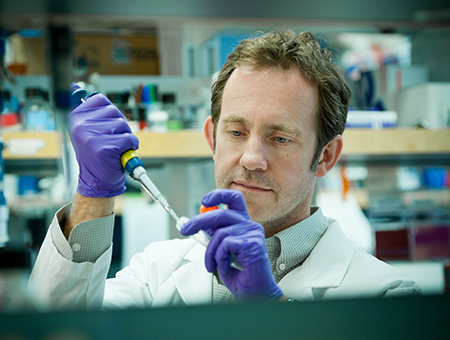A UBC project is seeking to demonstrate the feasibility of quickly analyzing the protein-coding genes of all critically-ill newborns, to speed diagnosis, treatment and parent counselling.
The Rapidomics project will sequence the protein-coding portions, called exomes, of 25 babies in the neonatal intensive care unit (NICU) at BC Women’s Hospital, along with their parents. Initial results, to be provided within five to seven days, are being provided by the Centre for Applied Neurogenetics, based at the Djavad Mowafaghian Centre for Brain Health.
In cases where the results carry clinical implications, Rapidomics will reduce delays in treatment and counselling, and avoid unnecessary testing. Currently, rapid exome sequencing is not routinely available in B.C.; this pilot project — funded equally by Genome BC and the province — will show whether such sequencing should be expanded to serve extremely sick babies anywhere in British Columbia.
“With the advance of innovative genome sequencing technology, we’re on our way to finding answers to some of the most challenging situations parents may ever have to face: severe mystery diseases in infants caused by genetic disorders,” said Health Minister Terry Lake.
Currently, genetic disorders like neurological problems, acute metabolic collapse, and malformations are a leading cause of infant mortality and make up a large percentage of the patients in B.C. neonatal intensive care units (NICU). This will significantly speed up the time for providing an accurate and rapid diagnosis to patients with these types of disorders.
“Our aim is to change care,” said Matthew Farrer, a Canada Excellence Research Chair in Neurogenetics and Translational Neuroscience and Dr. Donald Rix B.C. Leadership Chair in Genetic Medicine, and Director of the Centre for Applied Neurogenetics. “We will directly compare our results, our turnaround time, and costs with the leading service provider in the U.S. Our goal is to do this locally, at a lower cost, so that we can avoid the diagnostic odyssey so many families must endure. We also believe there are considerable economic benefits.”
Dr. Farrer is currently co-leading a genome-wide sequencing initiative at BC Children’s Hospital for pediatric patients with treatment-resistant epilepsy.
“Rapid exome sequencing in the NICU could replace hundreds of different tests that are currently in use,” said Alan Winter, president and CEO of Genome BC. “We are pleased to be supporting a project that could provide a BC-based protocol for optimizing benefits and economic viability of this type of testing.”
